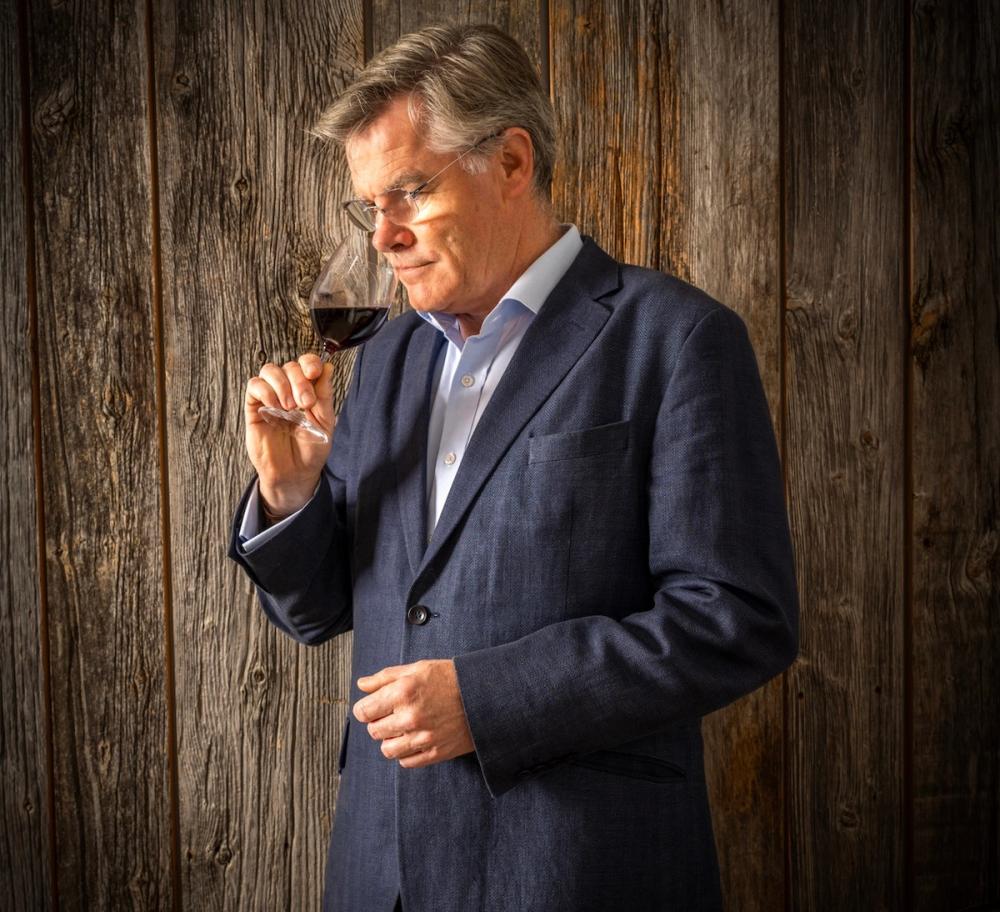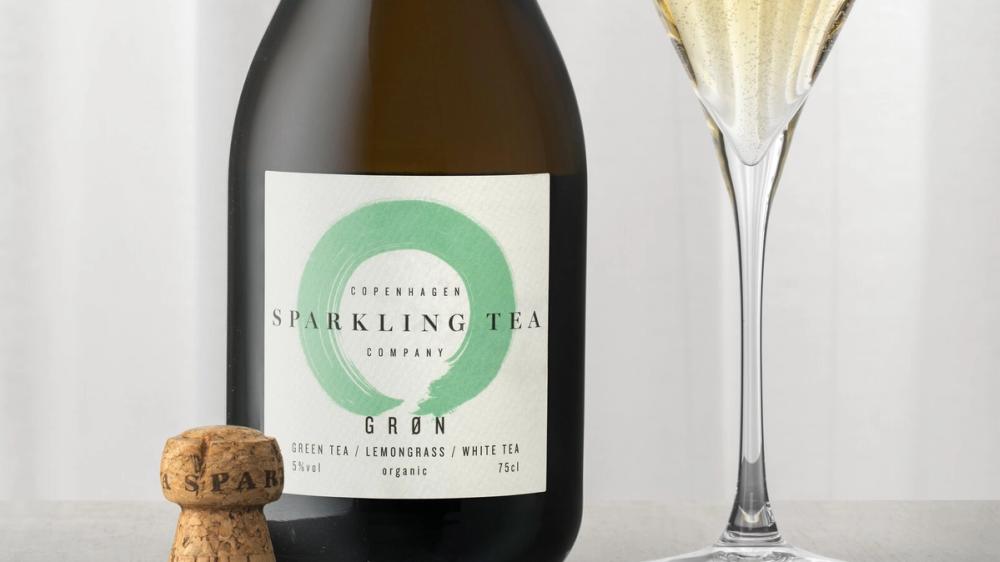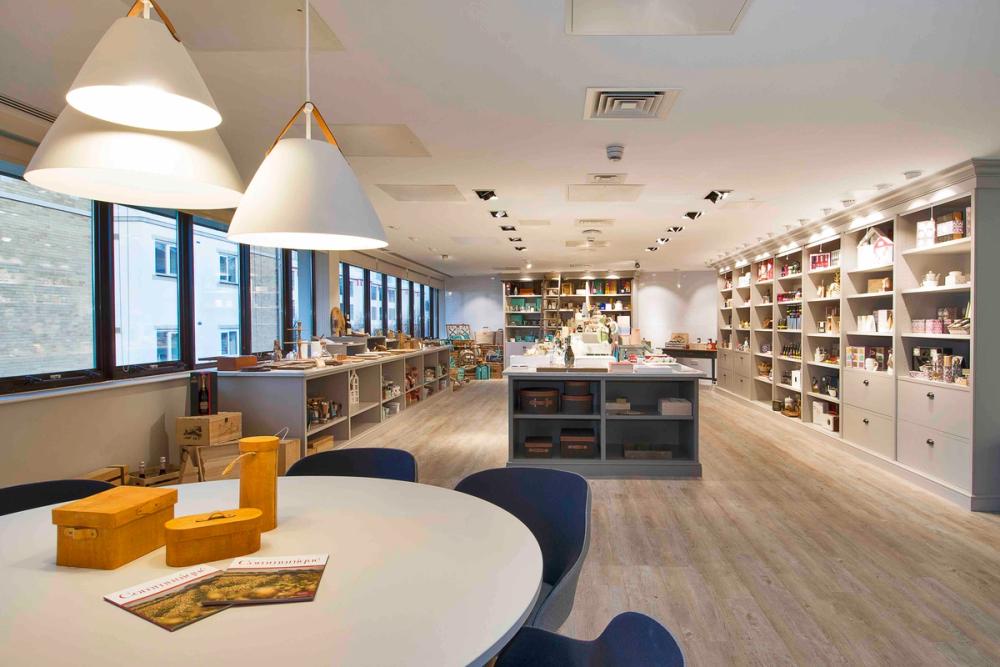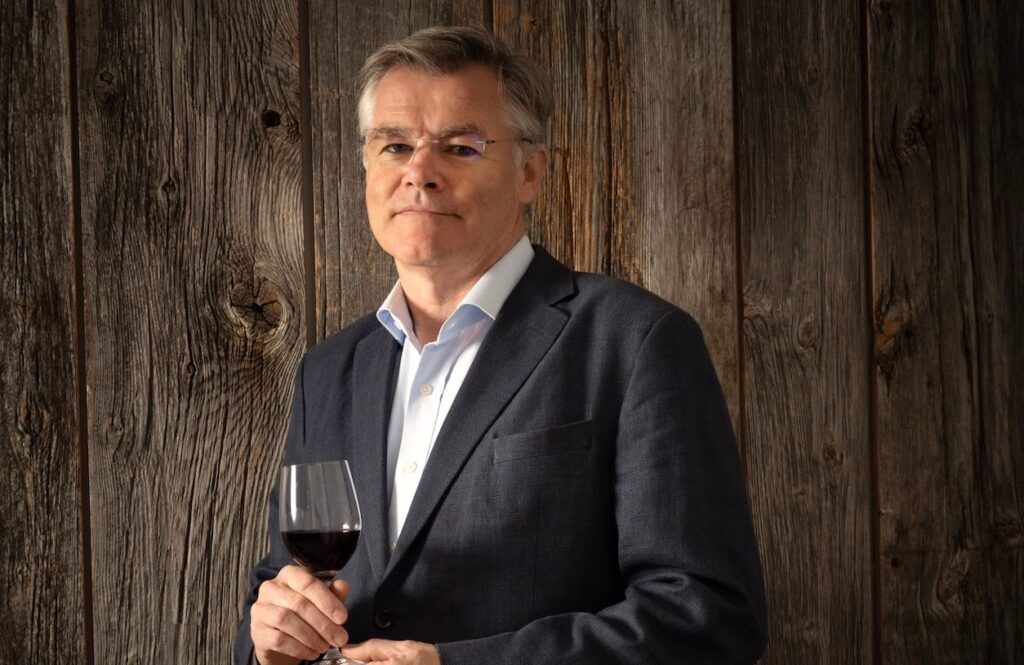Ewan MacKay makes a great company. An hour in his company could easily become two hours. But more importantly, especially for someone with the title of managing director, he or she is not the one doing all the talking. While he's more than happy to share his management ideas and beliefs, what sets him apart as a business leader to watch is his ability – and willingness – to listen.
This is an entrepreneur, after all, who has spent most of his career, working on the product and brand side of the fence where it pays to understand what the person you're looking to do business with wants. You may have the best wines or spirits in the world, but they will remain unsold unless you listen to what your target customer wants and find ways to capture their attention.
That's why he spent the first few months in his new role as managing director of Fells largely visiting, speaking and most of all listening to as many people as possible with whom the company deals. Whether it's its producing partners and stakeholders – Fells is jointly owned by Symington Family Estates, Torres, Yalumba and – third-party agency producers, or its retail and commercial clients.
It's all very refreshing to hear
Euan Mackay has been keen to talk but most of all to listen to his producing partners and key customers in order to determine how Fells can best serve them
“I have spent the last 27 years working on the export side of the company, dealing with distributors all over the world,” he explains. “What I hope I can bring to Fells is this perspective from the producer side. How do I make Fells the perfect distributor? After all, I've seen a lot of distributor models around the world.
Mackay is also quite clear about the role a UK wine distributor should play. “We have to do something that means our producers and their brands remain relevant to the trade in this market. A distributor is about adding value to their customers and their supply base. How do you add value to both sides.
“I used to love it when a distributor disagreed with me and told me how things really are in this country,” he adds. “They are the locals. They know their local market conditions.”
If Fells is doing her job right, she is essentially “a conduit for someone else’s business strategy.” “That's why we need to be a bigger partner in their business. To make sure their strategy is right for this market.
It also means knowing when to say no. “We need to have the confidence to respond. That has to be central to what we are trying to do so that we are all on the same page.”
“It can't just be about selling more wine,” he adds. We need to work together – a two-way process. We know the UK is a challenging market for them, but they all say the UK is still an important shop window to the rest of the world, and if you can have success here, it helps in their other markets.
Local experts
This means that the best distributors are the ones who really know the market they are working in. “We need to be the experts in the UK. Have the confidence to say where we think the market will be in three to five years and then help our producers maximize that.

Fells is looking to strengthen its position across premium deals and beyond
Likewise, it means working with producers who are also professionally focused on where they are going in the UK. Nor can it work with nearly 50 producing partners who are constantly changing their strategy for the UK. “We have to engage in a three-year strategy and then stick to it,” he stresses.
All of this means asking a lot of questions, and listening a lot, MacKay says.
“I'm used to asking these questions. Even the tough ones. What really makes you who you are as a business? That's what our sales team needs to know when they're telling your story to our customers. You have to have very compelling reasons to buy your wine. What sets you apart from all the other producers? We need to cut that down to a line or two.
But he quickly confirms: “It is very difficult.”
Talk to customers
So far MacKay has not only worked with Fells' supplier base, but has applied a similar approach of going out to talk to key customers, particularly large independent wine merchants, to hear directly from them about what they are looking for from a wine supplier – and Fells in particular.
This again led to some open, but very rewarding conversations, he says. They are quick to stress that this is not just a one-time action, but an “ongoing process” of constantly talking to customers about what can be done better.
He adds: “The market and the people in it are the first importance to me.”

Ewan Mackay says Phils will have to change and adapt to the new market and regulatory framework that drinks importers will have to live with
So what did he discover? The big takeaway, he says, speaking with top independents, is that “there's always a reason to deal with Philz.” Independents, who make up 10% of its business, are a good place to be.
MacKay says it will never be a “one-stop-shop” for freelancers, but it's good to know that it is — that magic word — “relevant.” “We now need to be more relevant to more independents and understand them better. So it's important we take the time to listen to them.
The feedback as to what needs to be done better is mainly down to customer service which Mackay hopes to address by appointing a dedicated operational customer services manager.
Targeted help
To help keep their brands and products relevant is why they work closely with their most popular brand contributors – Torres and Hills Smith Family Estate's Oxford Landing brand – to find ways to keep their brands relevant in the UK by targeting… The most attractive categories. And competitive duty rates of less than 11.5% abv. “We have to do what we can to mitigate fee increases.”
He believes that what Oxford Landing has been able to achieve with its 10% abv wines is a good standard for others to follow, as they are still “making wines from scratch.”
With around 65% of its business going through major supermarkets, its core products are at the top of their needs too – and managing fees and prices is key to that.
That's why it is working closely with major retailers in trying to manage the overall port category in the face of 20% increases in duties on fortified wines as part of the government's duty review which saw a £1.30 increase to the minimum on wines. Medium bottle of port.
It is clear that MacKay is well aware of the ups, downs and exits of the port market. He now has more of a side seat to seeing the impact the government's new fee reforms are having.
He says that while overall port sales were down 10% in 2023 compared to 2022, much of that was mitigated by importers and retailers buying a lot of inventory in advance ahead of the tariff hike in August.
He fears that “this year will be the real test.” “We could see this category declining by 15%.”
That's why Fells must constantly look for new opportunities and “areas where we need to be stronger.”
She may have close to 50 production partners, but she is still keen to work with more as she “knows we can do work for them” in the UK.

Copenhagen Sparking Tea is a new departure for Philz – a premium tea brand that deserves a place at the dining table
It is also looking to develop new products. Most notable is the recent introduction of the Copenhagen Sparkling Tea brand which offers a high quality, premium drink ideal for high-end hotels and bars at 0% or 5% alcohol. As MacKay says, the wine may not be made from grapes, but it has all the attributes of a fine wine and was founded by sommelier Jacob Kosimba and introduced to the business through his master sommelier advisor, Stefan Neumann.
He adds that it will hopefully make Fells more relevant to its diverse customer base. This means it now has a place as part of the upscale afternoon tea service hosted by the Ritz – and other similar venues.
“We took it as part of our development agenda, but we are excited about it,” he says. “We want to build the brand and not just sell.”
Gift boom
There's also 15% of Fells' business that only a few people outside the company know about. Dedication. It's run as a separate operation, with a dedicated food and drink gifting team, and offers everything from Fortnum & Mason and Liberty baskets, to custom knives for high-end steakhouses and everything in between.

Fells' gift division is a key part of the business's growth strategy
Mackay says he is very excited about the potential the gifts business still has to grow, particularly in terms of adding value and once again being more “relevant” to its customers and producers. If an independent wine merchant, for example, wants personalized gift bags, wine boxes and a corkscrew, Fells has the answer.
“It's another reason to do business with us,” McKay adds.
Go ahead
Having the backing of major producing shareholders gives Fells a business model that means he can take a slightly longer view. Yes, profits are obviously still very important, but having “real goals” that will help build “distribution and visibility” for their producing partners is ultimately what MacKay and his team will be judged on.
That's why it is also increasing its investments in data and analytics so that it can better understand how it is performing as well as the market in which it operates. “Personalize the systems to do that,” he adds.
He adds that the ability to manage “compliance” across a number of areas will accelerate in the coming years, particularly in relation to energy, extended producer responsibility, packaging, glass and waste. “We now have a four strong compliance team.”
All of which will help MacKay and the Philz team and producing partners continue to expand the scope of what is, on paper, an already successful business.
“We have high volume now, but what can we do to add more value for our customers and producers?” McKay asks.
Provided he continues to ask questions and listen to the answers of his producers and customers, Fells should continue to be one of the UK's most 'important' distributors.
*You can learn more about Fells on her website here.
* Phils is a partner of the buyer.


